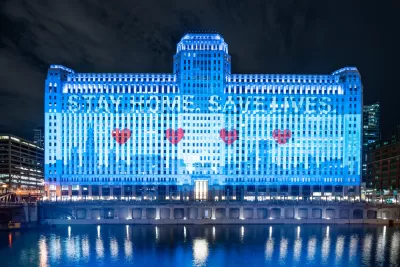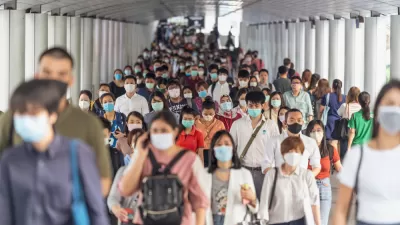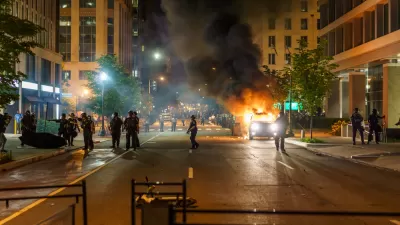Maurice Cox, planning commissioner for the Chicago Department of Planning and Development, is the subject of this in-depth coverage by the Chicago Tribune.

Blair Kamin interviewed Maurice Cox, the current planning commissioner of Chicago and previous planning chief in Detroit, who shares insight into how planners can help spur economic and social healing in U.S. cities while protecting residents of the public health risks of the pandemic.
According to Kamin, Cox's challenge in the city of Chicago must focus on the neighborhoods with the longest history of deliberate neglect. According to Kamin, these neighborhoods in Chicago saw looting during the protests following the killing of George Floyd at the hands of police in Minneapolis.
While much of the national conversation in the wake of Floyd’s death has rightly focused on tearing down Confederate monuments and other symbols of racism, too little attention is being paid to the nitty-gritty task of building up African-American and Latino neighborhoods that have been hammered by decades of disinvestment and decay.
As specific evidence of the response of the multiple crises facing the most vulnerable residents of Chicago, Cox lists several specific initiatives underway at the Chicago Planning and Development Department, including a shift in priority for the INVEST South/West underway at the city, plans to allow outdoor dining for restaurants on the South and West sides, and forthcoming programs to invest in vacant properties in struggling communities in Englewood and Austin, among others.

Maui's Vacation Rental Debate Turns Ugly
Verbal attacks, misinformation campaigns and fistfights plague a high-stakes debate to convert thousands of vacation rentals into long-term housing.

Planetizen Federal Action Tracker
A weekly monitor of how Trump’s orders and actions are impacting planners and planning in America.

Chicago’s Ghost Rails
Just beneath the surface of the modern city lie the remnants of its expansive early 20th-century streetcar system.

Bend, Oregon Zoning Reforms Prioritize Small-Scale Housing
The city altered its zoning code to allow multi-family housing and eliminated parking mandates citywide.

Amtrak Cutting Jobs, Funding to High-Speed Rail
The agency plans to cut 10 percent of its workforce and has confirmed it will not fund new high-speed rail projects.

LA Denies Basic Services to Unhoused Residents
The city has repeatedly failed to respond to requests for trash pickup at encampment sites, and eliminated a program that provided mobile showers and toilets.
Urban Design for Planners 1: Software Tools
This six-course series explores essential urban design concepts using open source software and equips planners with the tools they need to participate fully in the urban design process.
Planning for Universal Design
Learn the tools for implementing Universal Design in planning regulations.
planning NEXT
Appalachian Highlands Housing Partners
Mpact (founded as Rail~Volution)
City of Camden Redevelopment Agency
City of Astoria
City of Portland
City of Laramie





























